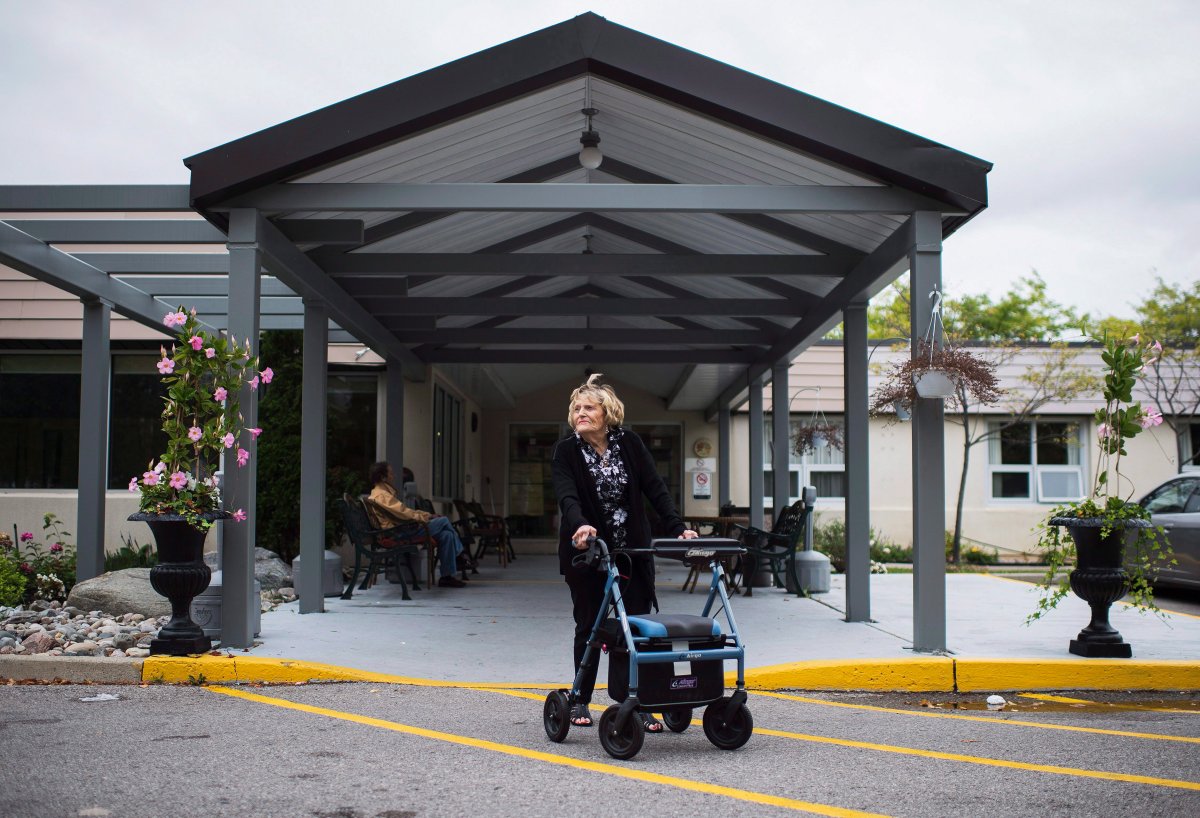B.C.’s Seniors Advocate is raising issues with a report warning of a coming crisis in staffing for care homes.

The report, titled “Situation Critical,” was released last month by the BC Care Providers’ Association (BCCPA), and warned that the province will need to add more than 2,800 full-time health care aids in the next five years in order to meet demand.
LISTEN: Seniors Advocate says care aide report contains errors
It said short staffing meant current employees are being overworked, and called for more access to education and training, along with student loan forgiveness programs.
But Isobel Mackenzie says the report is misrepresenting some numbers, and avoiding other reasons for staffing shortages.
Speaking on CKNW’s The Jill Bennett Show, Mackenzie said the 2,800 figure was taken out of context — that the data supplied by the province points to new supply of care aides will be added in the coming years, not how short it will be.
“So there’s a big difference between saying we’re forecasting a demand of 2,839 and we’re forecasting an increase in supply, which is the correct information, of care aides,” she said.
The figure, which was drawn from a hansard transcript of Health Minister Adrian Dix, was the ministry’s estimate of how many new care aides the province is adding in order to keep pressure on the system at “zero.”

Get weekly health news
WATCH: 1 in 5 Canadian seniors entering long-term care too soon: report

Mackenzie went on to say that the shortage is not do to a lack of workers, noting that many privately-run care homes are not having a hard time attracting staff because they pay more.
She said as many as half of B.C.’s private facilities have not signed on to the province’s master collective agreement for care aides, but are still funded by health authorities at the collective agreement’s wage rate of around $23 per hour.
She said some of those facilities pay workers wages $5 to $7 lower than the master rate, and pocket the difference.
- After controversial directive, Quebec now says anglophones have right to English health services
- Something’s fishy: 1 in 5 seafood products are mislabelled, study finds
- Why non-alcoholic beer is gaining steam at Oktoberfest: ‘Nobody will judge you’
- Recall expands for Nutrabolics vegan bars over undeclared milk
“If I don’t have enough staff in my facility because I don’t have enough funding, enough money to hire more people, that’s a fundamentally different problem than the problem of I don’t have enough care staff in my facility because I’m putting out a help wanted sign and nobody’s applying,” she said.
“Maybe they’d have better success in getting a care aide if they paid the wage rate they were funded to pay.”
Mackenzie said she wants to see a “level playing field,” with a provincial wage rate that is applied to all publicly-funded care facilities.
She added that there is no shortage of people who desire to become care aides, and pointed to waitlists for public institutions offering training. She said private institutions offering the same program have empty spaces because their tuition is much higher.
But BCCPA CEO Daniel Fontaine says when it comes to the administration of care facilities, Mackenzie is “out of touch.”
He acknowledged the wage gap within the private system, and said it’s something that’s being looked at.
But he said regardless of whether facilities are publicly or privately run, they’re all reporting the same hiring challenges.
“If you were to contact the health authority owned and operated sites that are paying at that higher wage you will hear from them the exact same thing that you’re hearing from private employers, that they are struggling to get care aides,” Fontaine said.
“This is an issue of supply, this has a lot to do with the fact that we’re not training enough care aides, we’re not bringing enough care aides in from out of the province.”
Regarding the dispute over whether B.C. is adding 2,800 workers or will face a shortage of that same number, Fontaine said he’s seen nothing from the province indicating such a hiring spree.
“I’d be very interested to see the plan, I’d be very supportive of a plan to ensure there will be another additional 2,800 care aides brought into the province over the next few years, I’m unaware of that plan.”












Comments